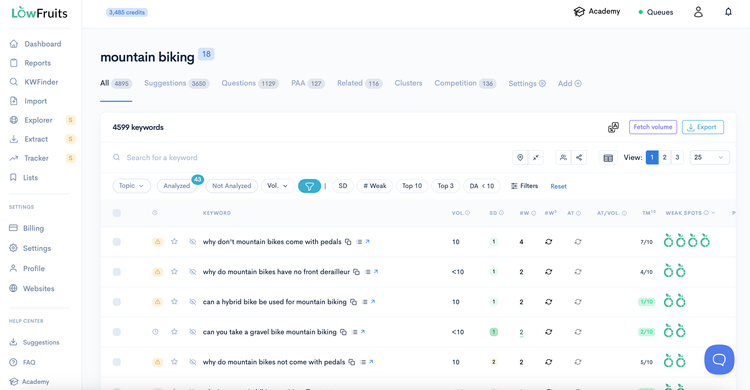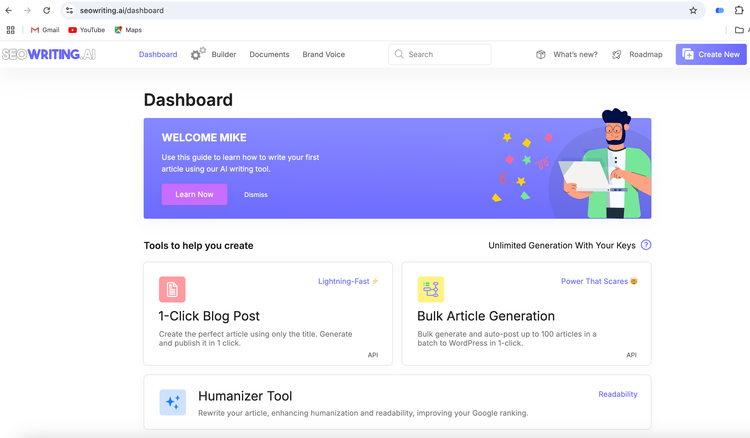Vlogging vs Blogging - Which is Better?

Are you trying to decide between starting a blog or starting a YouTube channel? Choosing between blogging and vlogging seems difficult, but the answer is easy. While both will let you share your ideas, I think vlogging has some inherent advantages over blogging. Let's explore which on is better.
Blogging does have a lower barrier to entry. Platforms like WordPress, Ghost Pro and Medium have made it easy for people to share written content. Vlogging (typically synonymous with YouTube) isn't as easy to do, but has some advantages that blogging can't match.
Blogs are great for detailed explanations and SEO is essential when you create content for your blog to ensure it reaches your intended audience effectively. And that's the problem. Blogs are subject to the whims of Google core updates, while vlogs can begin attracting traffic on day one. Vlogs are also perfect for building personal connections and showing off products or experiences.
Key Takeaways
- Blogs focus on written content, vlogs on video content
- The equipment and software needed for Vlogging is typically more expensive than what is needed for blogging
- Vlogging can be more technically challenging (particularly video editing).
- I think Vlogs tend to attract more visitors and have a wider reach
- Blogging allows greater anonymity which might make some people more comfortable
- Both platforms offer unique benefits for audience engagement, monetization and community building
Introduction to Content Creation: Blogging vs Vlogging
Blogging and vlogging are two ways to communicate with an audience and make money online. Understanding the differences can help you decide which one you might want to focus on. Even though I prefer vlogging I do feel a holistic approach where you have a blog supporting your vlog can be beneficial (although I'd spend more time building a vlog first).
Defining Blogs and Vlogs
Obviously, blog is a site for written articles. It's great for those who prefer to communicate in writing. While blogging started as on-line personal journaling, I think most people typically read blogs that center on a specific interest. For example, I love photography blogs because I can learn about cameras and lenses and easily study detailed reviews and instruction for self-education.
Vlogging, however, is about communication visually. Vloggers use YouTube to share everything from personal experiences (think travel vloggers) to instructing and teaching. For example, a video showing a beginner how to cast a fly rod is much easier to understand than a blog post describing the same activity with a few photos.
The Rise of Digital Content Platforms
Online platforms have changed how we make and watch content. Sites for sharing content online like YouTube, Instagram, and TikTok help vloggers reach more people. I prefer creating longer form video content so I would say new vloggers should be concentrating on YouTube (particularly if you plan to monetize your content).
For bloggers, WordPress, Ghost Pro, Medium and other user-friendly content management systems makes it simple to share blog posts. These tools have made it easy for content creators to write and publish content. I've used both WordPress and Ghost Pro for blogging. While my personal preference is Ghost Pro, WordPress continues to be the most popular blogging platform due to its extensibility.
Why Choose Between Blogging and Vlogging?
Choosing between blogging and vlogging depends on a few key considerations. In my mind they are:
- Technical debt (technically, starting and maintaining a blog is easier than starting and maintaining a YouTube channel)
- Personal exposure (blogging is fairly anonymous, while vlogging will require you to get up close and personal with your viewers)
- Cost (overall, vlogging has expenses you don't encounter with blogging - microphones, lighting, cameras, paid software etc.)
- Monetization (most people have the goal to monetize and I think vlogging has the better potential for monetization)
- Google Search Engine Updates - Google has not been friendly to many bloggers and recent Core Updates have hurt blog traffic (particularly for new bloggers)
Blogging is good for those who really enjoy writing (or editing as many bloggers use AI writers to create the foundation of their blog posts). Bloggers also have to get familiar with keyword research and search engine optimization. It's perfect for sharing detailed information and becoming an expert.
Vlogging is for those who are interested in learning video editing and being on camera. It's great for telling stories, teaching, building personal connections with viewers and doing product reviews.
Google Loves YouTube
Another big plus is Google loves YouTube content. Many times the first page on Google for a search term will feature multiple YouTube videos. That's a huge plus, because getting new blog posts on page 1 of Google is really tough to do unless you have an aged domain with a ton of good backlinks.
Final Thoughts
Both blogging and vlogging can help you engage with your audience and make money. Bloggers can use affiliate marketing, run ads and write sponsored posts. Vloggers can earn from ads, affiliate sales and brand partnerships. The choice depends on your strengths and what your audience likes.
Considerations for Choosing Your Platform
Choosing the right platform depends on what you want to achieve. Blogs give you full control over your site. Video platforms already have a big audience. Think about who you want to reach, what kind of content you'll make, and how you'll make money. Your choice affects how you make content and connect with people.
| Platform Type | Popular Options | Key Benefits of creating content online. |
|---|---|---|
| Blogging | WordPress, Medium, Ghost, are excellent platforms to create a blog. | Website control, SEO optimization |
| Vlogging | YouTube, TikTok | Built-in audience, easy sharing |
Blogger vs Vlogger: Content Creation Process and Skills Required
Starting a blog or vlog requires different skills. Blogging has been around longer and needs strong writing, research, and basic web design skills. You must pick a blogging platform and focus on writing well. Bloggers become experts in their topics through lots of research and writing.
Vlogging requires skills in video production, being comfortable on camera, and editing videos. Vloggers must know about lighting, audio, and telling stories through visuals. Even though the technical barriers are greater, vlogging is getting more popular with people of all age demographics starting YouTube channels.
Both blogging and vlogging need you to keep creating and connect with your audience. Bloggers use editing software to make their content better. Vloggers use video editing tools. SEO is key for both, with bloggers focusing on keywords and vloggers optimizing their video titles and descriptions.
| Skill | Blogging | Vlogging |
|---|---|---|
| Content Creation | Writing, research | Video production, on-camera presence |
| Technical Skills | Basic web design, SEO | Video editing, lighting, audio |
| Equipment | Computer, writing software | Camera, microphone, lighting |
| Time Investment | Lower | Higher |
| Learning Curve | Moderate | Steep |
Audience Engagement and Interaction: Key Differences
Blogs and vlogs are great for connecting with people. They help build communities and keep people engaged. As with any platform, you may occasionally have to deal with negative comments. Truthfully, I find building community is far easier for a YouTube channel than a blog.
Due to spam issues, a lot of blogs have comments turned off. This means you need to run a newsletter and collect email addresses to talk to your blog community.
Building a Community Through Comments
Blogs used to be perfect for deep discussions. But, leaving comments turned on means you need to carefully curate the responses.
It's just a fact that you'll get negative comments. Some are warranted and others are simply trolling. If the negative comment aligns more with constructive criticism (maybe you got a fact wrong) I engage in a friendly manner and thank the commenter for pointing out my mistake. If the comment is personal in nature I either ignore it or if I think it's totally unwarranted, I'll delete it.
A good content management system and tools to block spam comments are essential for your blog.
Live Interaction in Vlogging
Vloggers get instant feedback from their audience. Live streams let them do Q&A sessions in real-time. This creates a personal bond with viewers. It's great for making money online through super chats or donations.
Social Media Integration for Blogs and Vlogs
Both bloggers and vloggers can use social media to reach more people. Sharing content on platforms like Instagram or Twitter can increase traffic and engagement. This is a smart move for those wanting to make money online.
Pick the platform that fits your strengths and what your audience likes. This way, you can build a strong community around your content. Don't forget to consider social media automation tools to make your life easier.
Vlogging vs Blogging: SEO and Discoverability
Both blogging and vlogging have their own strengths when it comes to SEO and being found online. Blogs use traditional SEO methods. Vlogs depend on the YouTube algorithms and viewer interactions.
Blogging lets you control keywords and optimize content easily. Tools like LowFruits and KeywordsPeopleUse are good for finding long tail keywords. Tools like NeuronWriter and SurferSEO are great for SEO optimization.
My personal favorite for keyword research is LowFruits and for SEO optimization I use NeuronWriter. This is great for search engines, which can make your site more visible and bring in more visitors.
Vlogs, however, work differently. They grab viewers' attention and keep them watching, which can lead to more engagement. Videos can quickly get people hooked, increasing watch time, likes, and shares. Another plus is YouTube videos (at the time of this writing) get prominently listed in Google. For example, I've written blog posts on the NeuronWriter tool and it got limited coverage in Google. But my videos on the same topic

Mixing blog and vlog content can be a smart SEO move. It gives you different types of content in search results, appealing to various users. Whether to focus on blogging or vlogging depends on your audience and what you aim to achieve.
Monetization Opportunities for Bloggers and Vloggers
In 2024, content creators have many ways to earn from their blogs or vlogs. Both formats let you turn your passion into profit. Let's look at the main ways bloggers and vloggers make money.
Advertising Revenue Models
Blogging often involves display ads and affiliate marketing for income. WordPress hosts over 43% of internet activity, making it easy to add these ads. For vlogging, YouTube is the top platform. Ad revenue is a big source of income, with top YouTubers earning over $10 million a year.
Sponsorships and Brand Deals
Brand partnerships are a big deal for bloggers and vloggers. With 74% of viewers trusting vlogs more than traditional ads, companies want to work with them. Food blogging is a profitable niche that often includes sponsored content.
Product Sales and Affiliate Marketing
Selling digital products or using affiliate links is common in blogging. Vloggers often sell merchandise, using their brand. Both methods can be profitable, but vlogging usually makes more per view.
Whether you pick a blog or a vlog, success comes from making engaging content, building an audience, and having different income sources. Video blogging might help you make money faster, but blogging can give you steady, diverse income over time.
Equipment and Investment Considerations
Starting a blog or a vlog requires different equipment. A blog is easy to start with just a computer and internet. But, vloggers often buy more gear.
To start a blog, you'll need:
- A domain name
- Web hosting
- Content management system (like WordPress or Ghost Pro - this blog is hosted on Ghost Pro)
- Basic writing tools
For vlogging, you'll need:
- Quality camera (Note: a smart phone can work when you are starting out)
- Microphone (Don't skimp on a good microphone - I use the Shure MV7)
- Lighting setup (keep it simple in the beginning)
- Video editing software (I use Camtasia and Audiate, another good one to consider is Descript)
- Tripod
Blogging costs less to start, but both types of content creation take time. Blogging vs vlogging also have different ongoing costs. Bloggers pay for hosting and domain renewals. Vloggers might need to buy new equipment often.
Both blogging and vlogging can make money through ads, sponsorships, and affiliate marketing. Choose based on your budget, skills, and goals.
Conclusion: Blog vs Vlog
Choosing between vlogging and blogging depends on your strengths, goals, and who you want to reach. Consider whether you want to create a blog or focus on making successful YouTube videos.
There are over 600 million blogs and 3.1 billion daily video viewers. Blogs let you dive deep into topics with written content. On the other hand, YouTube channels can reach millions by telling stories through videos.
I like vlogging better. But, that's me. Consider all of the facts and get creating!
Frequently Asked Questions
What is the main difference between vlogging and blogging?
The main difference is that a blog is a website featuring written content, often resembling an online journal, while a vlog is a video blog primarily hosted on platforms like YouTube. Blogging requires writing skills, whereas vlogs require video production skills.
Which format, blogging or vlogging, makes more money?
Both blogging and vlogging offer lucrative opportunities, but successful vloggers on platforms like YouTube can sometimes make more money through various monetization options, including ads, sponsorships, and merchandise sales.
Is it easier to start a blog or a vlog in 2024?
Starting a blog may be easier because it typically requires less initial investment in equipment. You can start creating content with minimal cost. However, vlogging requires proper video equipment and editing software, making the initial setup more labor-intensive and expensive.
What are the skills required for blogging or vlogging?
Blogging requires strong writing skills and knowledge of SEO to rank well on search engines like Google. Vlogging, on the other hand, requires skills in video creation, editing, and on-camera presence to engage viewers effectively. Understanding how to produce a successful YouTube video can significantly boost your engagement.
Can you combine blogging and vlogging?
Yes, many content creators maintain both a blog and a vlog to expand their reach. For example, you could write detailed blog posts while also creating summary videos to share on your vlog.
Who should choose to become a blogger vs a vlogger?
If you enjoy writing and can consistently produce quality written content, starting a blog might be a better fit for you. If you're comfortable on camera and have the resources to create video content, vlogging could be the way to go.
Do vlogs require more investment compared to blogs?
Yes, vlogs generally need more investment in terms of equipment like cameras, microphones, and editing software. On the other hand, you can start a blog with just a computer and internet connection.
Is a blog or a vlog better for SEO purposes?
Blogs have historically been better for SEO due to the written content that search engines like Google can easily index. However, with the rise of video content, vlogs also have strong SEO potential, especially when optimized correctly.
How do you monetize a vlog compared to a blog?
Monetizing a vlog often involves ad revenue through platforms like YouTube, sponsorships, and affiliate marketing. For blogs, common monetization methods include display ads, sponsored posts, and affiliate marketing.
What makes successful vloggers so popular?
Successful vloggers often have compelling personalities, high-quality video production, consistent posting schedules, and a knack for engaging content. This combination helps them build a loyal audience and expand their influence online.



